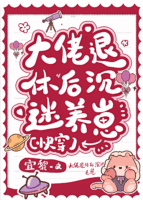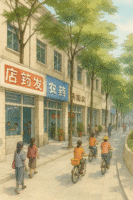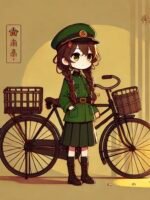I Have A Store C116
by MarineTLChapter 116: Artificial Incubation
After the apprenticeship banquet, Zhou Yimin went home with his grandfather, while Chen Baishu and Zhou Daqiu stayed behind to continue treating the elderly in the village.
Zhou Yimin took a nap, and after waking up, went to the mountain to check on the progress of the fencing.
In just two days, wooden stakes had already been set up around the foot of the mountain. Branches and other materials were used to connect the stakes, forming something like a wooden fence.
Without barbed wire, this was the best they could do.
“Sixteenth Brother! (Sixteenth Uncle!)”
When they saw Zhou Yimin, Zhou Zhihong and the others all greeted him warmly.
Zhou Yimin handed out cigarettes and reminded them not to toss cigarette butts carelessly—it would be bad if it caused a wildfire.
Zhou Zhihong and the others wanted to laugh. Who just tosses cigarette butts? Nobody throws them away without burning them clean first.
“Yesterday we even caught a weasel. I had someone release it on another mountain,” Zhou Zhihong said to Zhou Yimin.
And it wasn’t just a weasel—they’d also caught several snakes. Naturally, the snakes didn’t fare as well and all ended up in the village kitchen, where they were turned into a pot of snake soup.
Zhou Yimin was speechless. Weasels had excellent memories and held grudges.
If it were up to him, he would’ve just killed it. He wasn’t superstitious—if they could kill a tiger in this day and age, why hesitate over a weasel?
In some places, rats were also seen as mystical animals, just like weasels—both were part of the so-called “Five Immortals.”
But over the past two or three years, rats had been ruthlessly exterminated. The moment they showed themselves, people would go after them.
Besides, that whole “Five Immortals” thing was just feudal superstition. These days, people were actively rooting that stuff out. Everyone said that since the founding of the nation, no animals were allowed to become spirits.
Of course, Zhou Yimin wouldn’t impose his own worldview on the villagers or force them to change their beliefs. A healthy sense of reverence wasn’t necessarily a bad thing.
Zhou Yimin surveyed the area and pointed with his hand. “Get a few people to build a row of sheds over there.”
“Sheds? A whole row?”
“Even if it’s free-range, chicks need care in the early stages. Otherwise, the survival rate is too low. The sheds won’t just give the chicks shelter—they’ll also need two people stationed there every day to look after them,” Zhou Yimin said.
You already let the weasel go—how can you not take precautions?
There was nothing wrong with raising free-range chickens, but it didn’t mean you could just ignore them completely.
“Hmm! Makes sense. Old Third, you and the others go build them. Do a good job—people will be staying in them later,” Zhou Zhihong instructed.
“No problem! Building sheds is easy.”
Zhou Yimin spoke again. “It’s not just one or two sheds. I want them built from here, all the way around to there—everything needs to be set up. And while you’re at it, cut down all the trees in this area.”
This order made Zhou Zhihong and the others freeze in place, exchanging surprised glances.
Zhou Zhihong cautiously asked, “Sixteenth Brother, how many chickens are you planning to raise? That many sheds? This isn’t some small task!”
Raising too many wouldn’t be good, especially since the chicks had to be fed early on. Where would the village get enough food for them? And would the mountain even have enough bugs, termites, and other natural resources to support that many chickens in the long run?
Zhou Zhihong was skeptical.
Zhou Yimin chuckled and explained, “It’s not just for chickens—some of them are for mushroom rooms. Cutting down the trees is to cultivate mushrooms. And the wood used for mushrooms, once it’s exhausted, can be left to rot and nourish termites and wood grubs—which can feed the chickens.”
He had already planned out a complete biological cycle system.
The chickens’ manure could even provide organic fertilizer for the village. Raising chickens wasn’t just about earning a bit of money from selling them—there were many more benefits.
As for the consequences of cutting down trees, Zhou Yimin didn’t concern himself.
If you wanted development, how could it happen without some environmental disruption? Especially in this era—who had time to worry about that? Let everyone eat their fill first.
In later times, who would dare cut trees without a permit? You’d end up in jail before you knew it.
Some farmers were even arrested for cutting down trees they had planted themselves—utterly absurd.
But in this era, there was no need to worry about that. As long as you weren’t setting fire to the mountains, everything else was negotiable.
Lately, Zhou Yimin had been thinking about how to efficiently hatch chicks and how to cultivate mushrooms.
Relying on hens to hatch eggs was unrealistic. Buying a big batch of chicks was also difficult and troublesome.
The best way was to hatch the chicks from eggs themselves.
So, artificial incubation it was.
And artificial incubation involved certain machines—namely, chick incubators.
A chick incubator artificially mimics the conditions a mother would provide—temperature, humidity, egg turning—to develop fertilized eggs into chicks over time.
It wasn’t exactly high-tech—essentially, it was just a ventilated heated box.
The heating didn’t necessarily have to be electric. You could use coal briquettes, charcoal, or even maintain a constant temperature by replacing hot water.
So next, Zhou Yimin planned to make an incubator.
Since Zhoujiazhuang didn’t have electricity yet, they’d need to use alternative heat sources—though temperature control would be tricky.
Aside from temperature, proper ventilation was also critical.
As far as he knew, eggs needed to breathe while developing.
During embryo development, gas exchange was essential. Especially after day 19 of incubation, the embryo began to breathe with its lungs, requiring more oxygen and producing more carbon dioxide.
If ventilation was poor at this point, the incubator would become dangerously low on oxygen.
Even newly hatched chicks, if they couldn’t get enough oxygen, would suffer suppressed cell metabolism, build up acidic waste in their bodies, and increase CO₂ pressure in their tissues—resulting in metabolic and respiratory acidosis, reduced cardiac output, myocardial hypoxia, necrosis, arrhythmia, or even cardiac arrest.
So, among the many factors affecting hatch rate, temperature came first, and ventilation second.
As for cultivating mushrooms, Zhou Yimin had seen related videos in his past life and still remembered the general steps—it wasn’t that difficult.
Some techniques were like that: once pointed out, they seemed obvious to everyone.
But before that layer was pierced, it felt like a wall—you just couldn’t imagine doing it that way.
“In that case, a few of you won’t be enough. We’ll need to get more people to help,” Zhou Zhihong said.
After all, it involved chopping trees and building sheds. And not just one or two—but a long row, stretching dozens of meters, maybe even over a hundred.
“I’ll go get people,” someone volunteered.
“Make sure you explain it clearly to the old Party secretary and the others,” Zhou Zhihong said.
Technically, a matter this big should be discussed by the village committee. But since it was Yimin who proposed it, there was no need—just follow his instructions.
The old secretary and the team leader had already said that whatever Yimin said was what they wanted.
By around 4 p.m., Chen Baishu had finally finished seeing all the elderly in the village and prescribed medicine.
“You come find me in town tomorrow,” he said to Zhou Daqiu.
Since he had taken him as a disciple, he couldn’t just leave Zhou Daqiu to fend for himself. He needed to be by his side to be exposed to different medical cases.
“Alright, Master,” Zhou Daqiu replied with a nod.
(End of chapter)










0 Comments